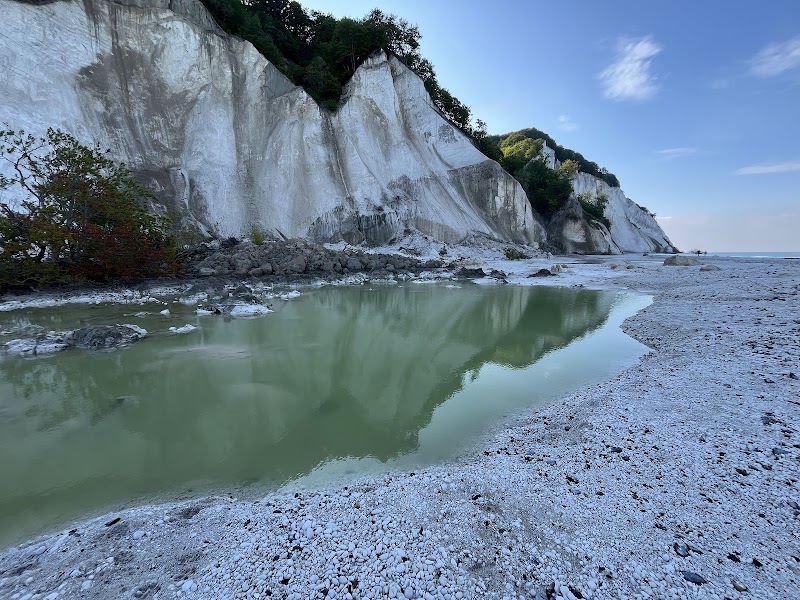Copenhagen Opera Festival: An Artistic Journey Through Denmark’s Capital
Each August, the Copenhagen Opera Festival fills the city with vibrant performances that reach far beyond the Opera House. Experience the fusion of classical and modern opera across historic and unexpected venues, all within the charm of Denmark’s capital.
Book Early for Popular Performances
Secure your tickets in advance, especially for headline shows at the Opera House or major venues to ensure availability.
Use Copenhagen’s Bike and Public Transport
The best way to navigate between festival venues is by bike or public transit to save time and reduce environmental impact.
Carry Comfortable Footwear
Cobblestone streets and mixed indoor/outdoor venues mean sensible shoes are a must for comfortable festival touring.
Prepare for Variable Weather
August evenings can be cool; bring a light jacket and plan for sudden weather shifts during open-air performances.
Copenhagen Opera Festival: An Artistic Journey Through Denmark’s Capital
Each August, Copenhagen sheds its everyday rhythm to embrace the vibrant pulse of the Opera Festival, transforming Denmark’s capital into a stage alive with voices, instruments, and stories. This event is not just for opera aficionados; it invites curious visitors to explore over 100 performances scattered across iconic venues, historic courtyards, and bustling public spaces. The festival’s pulse is both fierce and welcoming, challenging traditional boundaries by blending contemporary and classical acts.
Set against the backdrop of the city’s canals, cobbled streets, and architectural contrasts, each performance is an invitation to engage with the city’s cultural heartbeat. The main hub, the Copenhagen Opera House, demands attention as one of the most modern and acoustically precise venues in the world. But the festival’s true adventure lies off the beaten path—in intimate courtyards, under open skies, and within community centers where voices echo against centuries-old brick.
For planners, the festival runs through August, so booking tickets early is critical for headline shows. Expect a range of prices, from free outdoor events to premium seats in the Opera House. The festival’s schedule is a patchwork of lengths and styles, so pacing yourself is key—spread shows over several days to avoid fatigue.
Getting around the city is straightforward; Copenhagen’s public transport and bike culture make hopping from one venue to the next easy and eco-friendly. Practical advice: carry a reusable water bottle, comfortable shoes for cobblestone streets, and an adaptable jacket as summer evenings can shift from warm to brisk.
Copenhagen’s waterways reflect more than the skyline; they seem to carry the music forward, daring you to follow. The city itself is fiercely itself, a mix of historical grit and creative energy that refuses to be simplified. Participating in the festival is an active engagement: it asks visitors to listen intently, move fluidly, and absorb the layered stories that unfold through opera's reach.
Whether catching a minimalist modern piece in a glass-fronted gallery or an expansive historical opera on the main stage, the festival offers a hands-on adventure steeped not in physical terrain, but in cultural exploration. It’s a practical cultural expedition where every note and every scene challenges the audience to lean in and be present. This is opera without formality, inviting everyone to experience it as a thrilling journey through sound, space, and emotion.
Nearby Trips
All Adventures
Boat Charters
Water Activities
Adventures near Copenhagen
Discover the unique and memorable adventures that make Copenhagen special.
Frequently Asked Questions
How accessible are the opera venues for visitors with mobility issues?
Most main venues, including the Copenhagen Opera House, have excellent accessibility features such as ramps, elevators, and seating accommodations. For smaller venues, it’s best to check ahead as some courtyards or historical buildings may have limited access.
Are there free performances during the festival?
Yes, the festival features a variety of free outdoor and community events designed to welcome all audiences, often staged in public squares and parks around the city.
What should I know about the local public transportation during the festival?
Copenhagen's metro and bus services run frequently and are well-integrated with bike-sharing options, making travel between scattered venues straightforward and sustainable.
Can I bring food or drinks to performances?
Policies vary by venue. While open-air and public events often allow snacks and drinks, formal venues like the Opera House have restrictions and offer on-site concessions.
Are there lesser-known spots worth visiting during the festival?
Yes, smaller neighborhood theaters and pop-up venues in areas like Vesterbro or Christianshavn often host innovative opera interpretations and offer a more intimate experience.
What cultural elements outside of opera are highlighted during the festival?
Alongside performances, the festival integrates lectures, workshops, and community projects that deepen understanding of Danish musical heritage and contemporary culture.
Recommended Gear
Comfortable Walking Shoes
Navigate cobblestones and city streets with footwear that supports extended walking and standing.
Reusable Water Bottle
Stay hydrated while moving between venues, especially during outdoor events in warm August weather.
Light Jacket or Layered Clothing
Evening temperatures can dip; layering allows comfort during open-air performances.
Portable Charger
Keep your phone ready for schedules, maps, and ticket scanning throughout the day.
Local Insights
Hidden Gems
- "Church of Our Saviour’s rooftop spiraling tower for city views"
- "Ny Carlsberg Glyptotek courtyard performances"
- "Gammel Strand’s waterfront operatic recitals"
Wildlife
- "Urban birdlife like swans and seagulls frequent the harbors, adding lively natural ambiance alongside performances."
History
"The Copenhagen Opera House, opened in 2005, represents one of the world’s most advanced acoustic architectures, making it a landmark of modern design and Danish cultural ambition."

